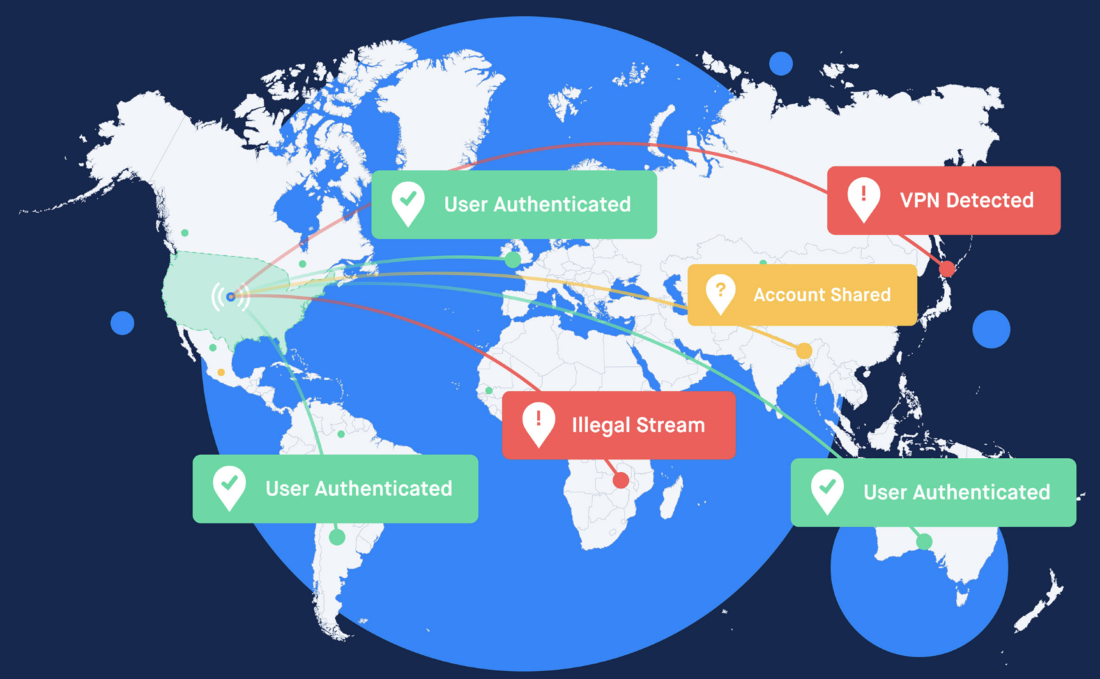
M&E Journal: Protect the Field of Dreams by Combating Piracy
In the summer of 2021, sports fans around the world finally got their fair share of live action, first with the UEFA Euro 2020 followed by the Tokyo 2020 Summer Olympics.
But athletes aren’t the only ones setting records. There’s an entirely different type of world record being broken, for pirate streaming. It’s flourishing as more and more fans are disregarding territorial content restrictions to access these high-caliber live sports events from wherever they want, regardless of whether they have to use nefarious techniques to get it.
THE PERFECT STORM
The COVID-19 pandemic caused a major paradigm shift in media consumption habits, which saw stream- ing services drive record subscriber growth as people stopped attending live sports events and movie theatres.
Along with an increase in streaming came a corresponding increase in the number of people using VPNs and proxies to circumvent territorial restrictions on geographically restricted content (geo-piracy).
Almost a third of all internet users use a VPN. Fifty-one percent of them do so to access “better entertainment content,” according to a survey by GlobalWebIndex.
 In addition, data collected by nScreen Media finds that over 50 million U.S. homes no longer have a traditional pay TV subscription. Combine these shifts in consumer behavior with the fact that anyone with a smart Android TV can now set up a VPN from their TV and watch territorially restricted content on their big screen, and the streaming industry has a big fight on its hands.
In addition, data collected by nScreen Media finds that over 50 million U.S. homes no longer have a traditional pay TV subscription. Combine these shifts in consumer behavior with the fact that anyone with a smart Android TV can now set up a VPN from their TV and watch territorially restricted content on their big screen, and the streaming industry has a big fight on its hands.
Both to keep content where it is supposed to be, and to uphold the lucrative territorial licensing deals it depends on.
A growing reliance on streaming platforms is whipping up the perfect storm for geo-piracy as viewers try to illegally access content in other regions, either because it’s unavailable in their country or available elsewhere at a much lower price. For example, savvy UK-based pirates can subscribe to watch English Premier League matches in the Baltics, using a VPN for only $1 a month, which is a fraction of the UK price.
This upswing in pirated sports streaming and geolocation fraud might seem like just a harmless by-product of the new streaming age. In reality it’s a serious threat facing the very business model that sports rights owners and sports leagues rely on.
IN THE STRIKE ZONE
Sports leagues and other content producers license their content on an exclusive territorial basis to OTT video providers and other streaming video platforms. This territorial licensing is the basis for virtually all their revenue. But when users circumvent geographical restrictions via VPNs and proxies, these revenue streams shrink. Not only that, by letting their streaming platforms
become a potential free-for-all, broadcasters and OTT providers are at risk of both breaking their contractual obligations with rights owners and possibly jeopardizing future rights deals. There’s also a growing body of evidence that shows viewing illegal live streams displaces legitimate viewing, which in turn results in lower subscription- and ad revenues over time.
FLIPPING THE SCRIPT
Fortunately, there is an easy way to protect valuable territorial rights: by implementing a highly accurate VPN and proxy detection solution. For instance, Geo- Comply’s GeoGuard, which recently won the 2021 CSI Award for Best Content Protection Technology, is used by leading broadcasters and video streaming platforms globally, including the BBC, beIN Media and Amazon Prime Video, to detect and stop geo-piracy.
Compared to complex and expensive security solu- tions such as digital rights management (DRM) and watermarking, VPN detection software is affordable and quick to deploy, making it accessible to smaller broadcasters as well. Estonia’s Postimees Group relies on GeoGuard to meet their contractual obligations with the International Olympic Committee.
Another benefit to tagging geo-pirates from the beginning is a lightening of CDN loads.
As soon as MultiChoice Group, which streams live and on-demand content in countries across sub-Saharan Africa, deployed GeoGuard, it was able to block tens of thousands of pirate viewers each month on its DStv app.
This dramatic reduction in geo-piracy cut CDN costs and freed up infrastructure capacity, which could then be used to serve more legitimate subscribers and provide a better-quality viewing experience.
 AN ALL-STAR LINEUP
AN ALL-STAR LINEUP
When choosing a VPN detection solution, it’s worthwhile to select one that is independently rated as delivering accuracy rates close to 100 percent, while maintaining a low false positive rate. In addition, make sure that the solution tackles new, ever-evolving threats such as hijacked residential IPs and proxy-over-VPN attacks.
GeoGuard is fully integrated with leading content delivery networks including Akamai and Amazon CloudFront, and streaming providers can defend their home base in the same time that it takes to hit a home run.
If the streaming of illegal content is left unchecked, the value of sports content will decline as competition for rights diminishes. This will result in reduced revenues for rights owners — and ultimately, lower investment across the entire ecosystem.
By flexing their muscles and blocking geo-piracy, OTTs and broadcasters are making a long-term investment in the viability of their businesses.
Reducing geo-piracy increases infrastructure availability, cuts costs, and allows them to serve legitimate subscribers better while protecting their hard-won subscription — and ad revenues for years to come.
** By James Clark, GM, M&E, GeoComply **
=============================================
Click here to download the complete .PDF version of this article
Click here to download the entire Winter 2021 M&E Journal
